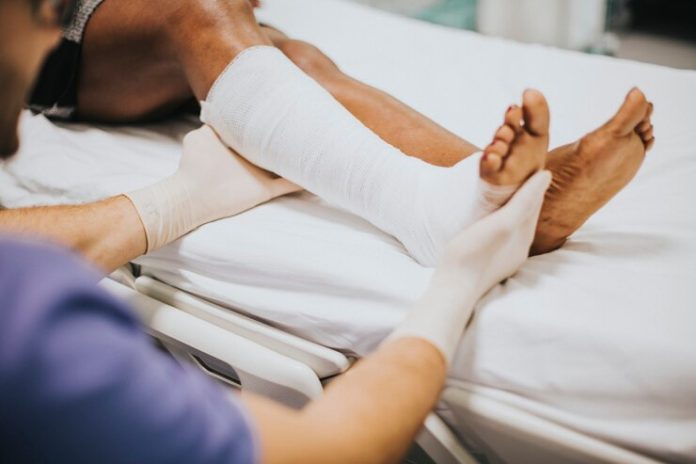Personal injuries can be distressing experiences, often leaving individuals uncertain about the necessary actions to protect their well-being and legal rights. Whether you’ve been injured in a car accident, a slip and fall incident, or another unfortunate scenario, taking the right steps immediately following the injury is crucial. Here’s a step-by-step guide outlining what you should do after experiencing a personal injury:
Table of Contents
1. Prioritize Your Health and Safety:
Above all, prioritize your health and safety. Seek immediate medical attention for your injuries, even if they initially seem minor. Prompt medical care not only ensures your well-being but also documents the extent of your injuries, which is crucial for any potential legal claims.
2. Report the Incident:
Report the incident to the appropriate authorities or property owners, depending on where the injury occurred. For instance, in a car accident, contact law enforcement to file a police report. In a slip and fall incident, notify the property owner or manager and request an incident report.
3. Gather Evidence:
Collect as much evidence as possible at the scene of the incident.
- Photographs and Videos: Capture the accident site from various angles, focusing on hazards, damages, or injuries incurred. Document the surroundings and any contributing factors to the incident.
- Record Details: Take notes detailing the sequence of events leading up to the injury. Include descriptions of the circumstances, weather conditions, lighting, and any other relevant factors.
- Witness Information: Obtain contact information from witnesses present at the scene. Witnesses can provide valuable testimony to support your version of events.
- Property Documentation: If applicable, preserve any physical evidence related to the incident, such as damaged personal belongings or the hazardous condition that caused the injury.
- Official Reports: Request or obtain copies of any official reports filed about the incident, such as police reports or incident reports from property owners or managers.
- Medical Records: Keep records of all medical treatments received due to the injury. This includes hospital visits, doctor’s appointments, prescriptions, and any medical procedures or therapies.
- Communication Records: Preserve all communication related to the incident, including emails, letters, or text messages exchanged with the involved parties, insurance companies, or authorities.
4. Keep Documentation:
Keep thorough records of all documentation related to the incident. This includes medical records, receipts for medical expenses, prescriptions, bills, and any communication with insurance companies or the opposing party.
5. Avoid Discussing the Incident:
Avoid discussing the details of the incident or your injuries with anyone except medical professionals, law enforcement, or your attorney. Refrain from posting about the incident on social media platforms, as these posts could potentially be used against you. Even innocent or unrelated posts can be misinterpreted or taken out of context. For instance, posting about engaging in physical activities or attending events might be misconstrued as evidence that your injuries aren’t severe.
To protect the integrity of your personal injury case, consider temporarily deactivating or adjusting privacy settings on your social media accounts to limit public access to your posts and prevent any potential harm to your case.
6. Contact a Personal Injury Attorney:
Consider seeking legal advice from a reputable personal injury attorney. According to the Austin personal injury attorneys at FVF Law, an attorney gives you access to the resources, skills, and experience you need after being injured in an accident. Their knowledge and experience enable them to navigate negotiations with insurance companies, handle legal paperwork, and represent your best interests in court, if necessary. Moreover, an attorney proficient in personal injury law ensures that your rights are protected while advocating zealously for the compensation you deserve
7. Notify Insurance Companies:
Inform your insurance company about the incident, but refrain from giving recorded statements or accepting settlement offers without consulting your attorney first. Be cautious when dealing with insurance adjusters, as they might try to settle for a lower amount than you deserve.
8. Follow Your Doctor’s Orders:
Adhere to your doctor’s prescribed treatments and recommendations for recovery. Failure to follow medical advice can impact your health and potentially weaken your legal claim for compensation.
9. Document Your Recovery:
Documenting your recovery journey is crucial in building a comprehensive account of your post-injury experiences. Keeping a detailed journal allows you to record pertinent information, such as the intensity of pain, specifics about treatments undergone, and the substantial impact of injuries on your day-to-day life and activities.
By maintaining a meticulous record of your recovery process, you create a valuable resource that demonstrates the severity of your injuries and how they have affected various aspects of your life, thereby strengthening the foundation for your personal injury claim.
10. Be Mindful of Deadlines:
Be aware of any deadlines for filing a lawsuit, known as the statute of limitations, as this varies by state and type of injury. Missing these deadlines could potentially bar you from seeking legal recourse.
Experiencing a personal injury can be overwhelming, but taking these steps can help protect your health and preserve your legal rights. Seeking guidance from a qualified personal injury attorney can further assist in navigating the complexities of such cases and ensuring you receive fair compensation for your injuries and losses.
















